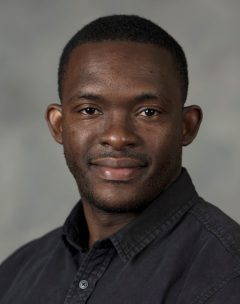In the column, Blake details a number of steps that could help restore faith in the country's democratic institutions.
The Miami Herald recently published an opinion piece by Associate Professor of Political Science and Policy Studies Damion Blake that made the argument that democracy in the Caribbean nation of Haiti is again at risk.

In the column titled “Haiti’s democracy is in peril. Its neighbors must stand behind the troubled nation,” Blake details the cascade of events beginning with the assassination of President Jovenel Moïse in July 2021 that has led the country to where it is now, and explains that the instability in the country is a risk to other countries in the region.
From Blake’s column:
The Caribbean community leaders of CARICOM have convened a series of consultation sessions with Haitian stakeholders to present plans and policies for security and political stability. The most recent was convened in Kingston, Jamaica, with Haitian Prime Minister Ariel Henry, and Haitian business leaders and stakeholders.
These are steps in the right direction, but there must be more.
Blake explains that reestablishing law and order, regaining control of state borders and ports and holding the next presidential elections under free and fair conditions are logical next steps to take to help restore stability.
From the column:
The Montana Accord, developed by a commission led by members of Haitian civil society, produced a policy blueprint for resolving the country’s security, economic and political crises. The group has widespread support from several Haitian and diaspora stakeholders.
The United States and CARICOM should listen to this group and support its initiatives to rebuild Haiti’s state and society. They should be good neighbors and provide Haiti with support stabilize the state, disempower gangs and reduce political corruption. A Haitian-led assisted strategy could, perhaps for the first time in the island’s history, will allow democracy to grow and flourish.
Read Blake’s full column for more details.
Blake’s teaching areas are comparative politics and government, national security, politics of the Caribbean, introduction to international relations, and interdisciplinary courses including “The Black Man in America.” Blake’s research areas are organized crime and urban violence in the Americas; democracy and mass participation in the U.S.; social Justice and race in the U.S.; and Caribbean politics, governance and development.


